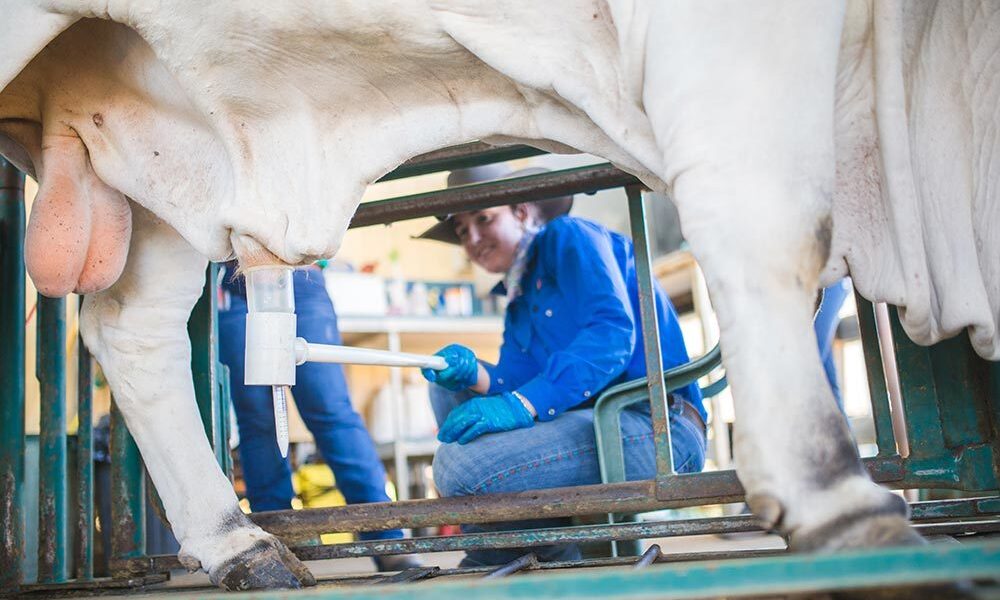- Ministry adopts modern technologies to improve livestock production
- Subsidised semen tapping will cost farmers between P35 and P58
- Artificial Insemination Lab (NAIL) at Ramatlabama is being upgraded to a centre of excellence
SESUPO RANTSIMAKO
The contribution of the agriculture sector to Botswana’s GDP has been declining mainly due to decreasing poor adoption of modern technology, the Minister of Agriculture Fidelis Molao, has said.
Speaking in Parliament recently, Minister Molao said the farming community has not taken advantage of existing technology, such as the one used to collect, process and store semen from their own bulls either for their own use or sale, to improve production.
This failure to adopt modern technology, has resulted in a decline in the share of agriculture in GDP.
Access to stored semen
“Adoption of the modern technology comes with benefits that include preservation and access to bull’s semen even beyond its lifespan and provides a business opportunity to trade in semen both locally and for export,” the minister said.
“This could also help other farmers to improve their livestock by having access to the stored semen. Ultimately, this will assist in improving livestock productivity and increase the cattle population.”
However, Molao added, this should change because as part of the initiative to improve the declining livestock productivity and transform the sector, the agriculture ministry has adopted use of modern technology, in particular the Assisted Reproductive Technologies (ART) and the Artificial Insemination (AI).
8.4m semen straws per year
To that end, the minister said the National Artificial Insemination Laboratory (NAIL) at Ramatlabama is being upgraded to a centre of excellence in production and export of high quality germplasm, particularly for semen and embryos.
In addition, NAIL is being upgraded to improve efficiency and increase production capacity from 22 500 to 8.4 million semen straws per year. The facility is expected to be completed by the year 2025.
Molao disclosed that his ministry has also developed a programme to support the farming community in collecting and processing of semen from farmers’ bulls. “The government will provide the programme under different scenarios at subsidised fees,” he said.
Private semen tapping
“This involves private semen tapping whereby the government provides a semen tapping service at a farmer’s farm at the cost of P35 or private semen tapping whereby farmers bring the bull to Ramatlabama for tapping of semen at a service fee of P36 per straw.
“Besides these, there is also private semen tapping with the quarantine whereby registered breeders bring their bulls to Ramatlabama for semen tapping at a service fee of P58.
“These initiatives are meant to address the declining national herd and drive livestock production in a knowledge-based economy.”

